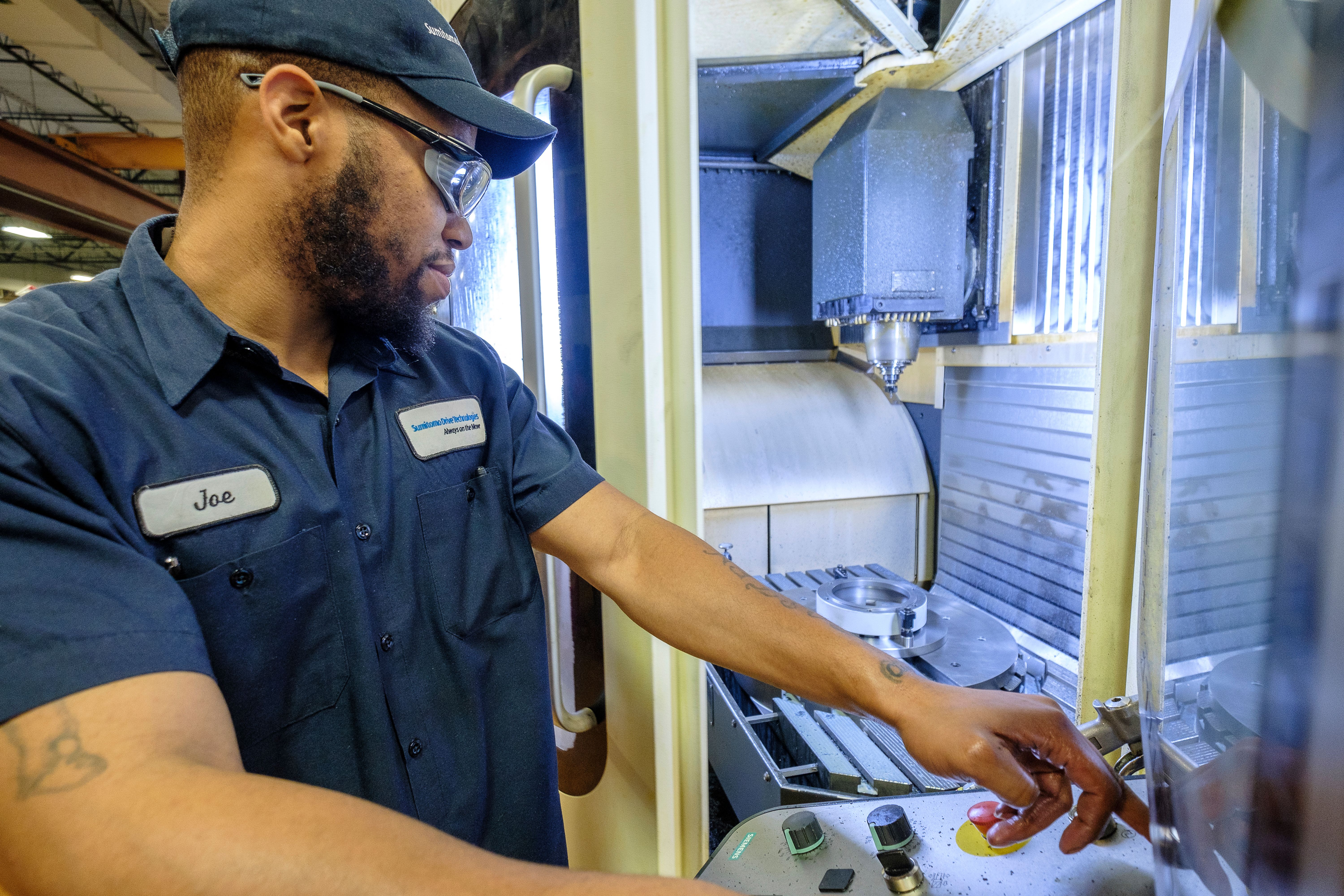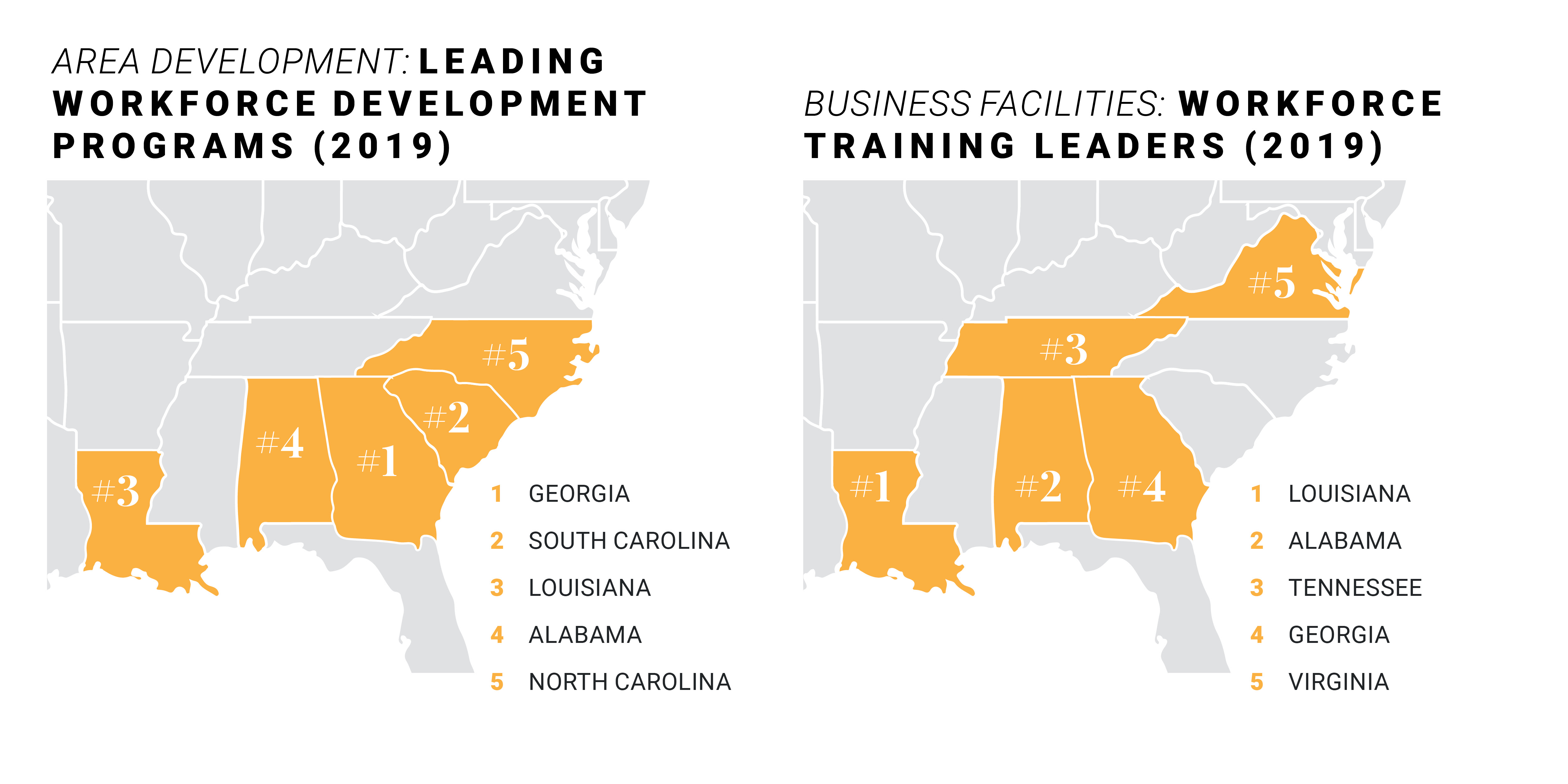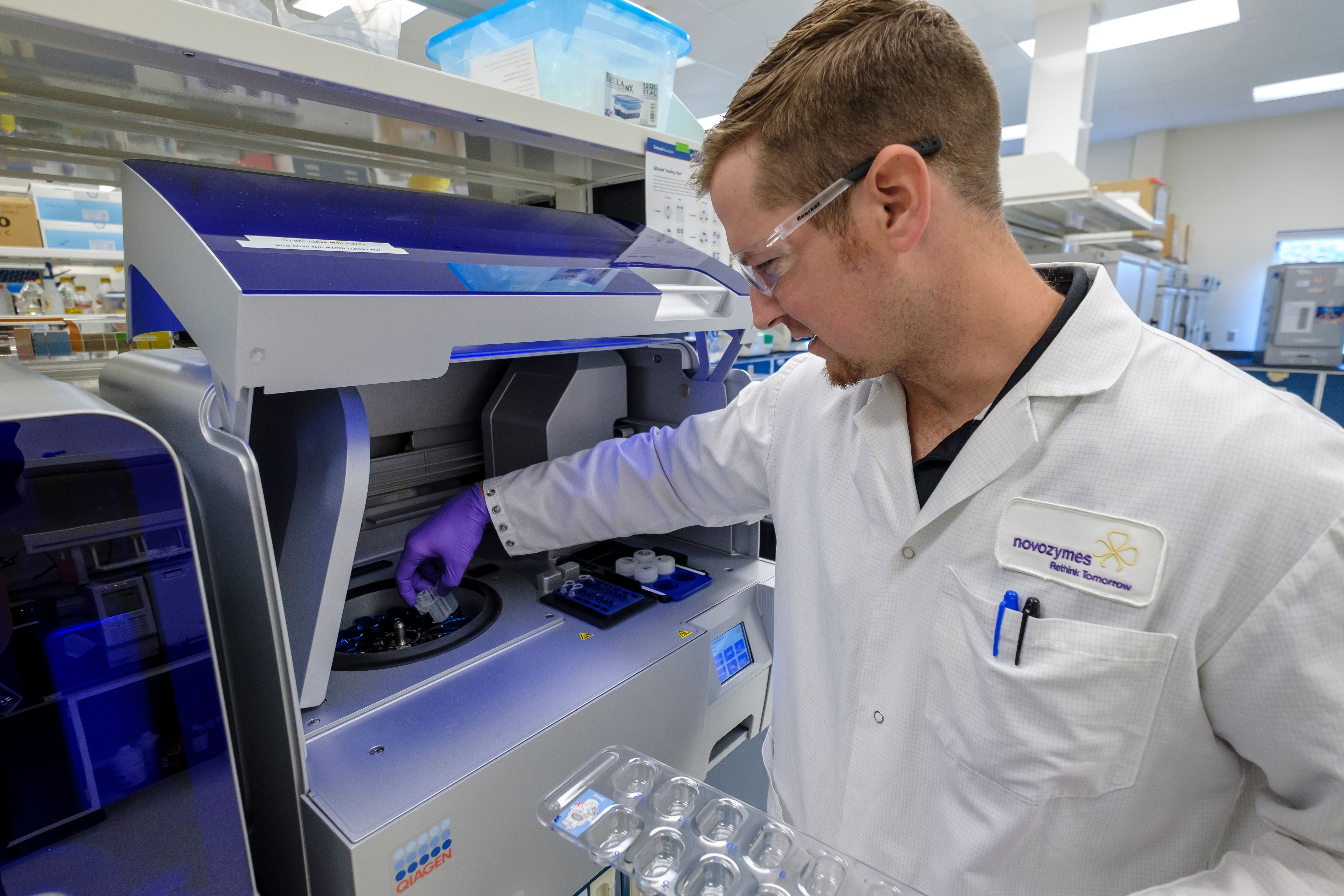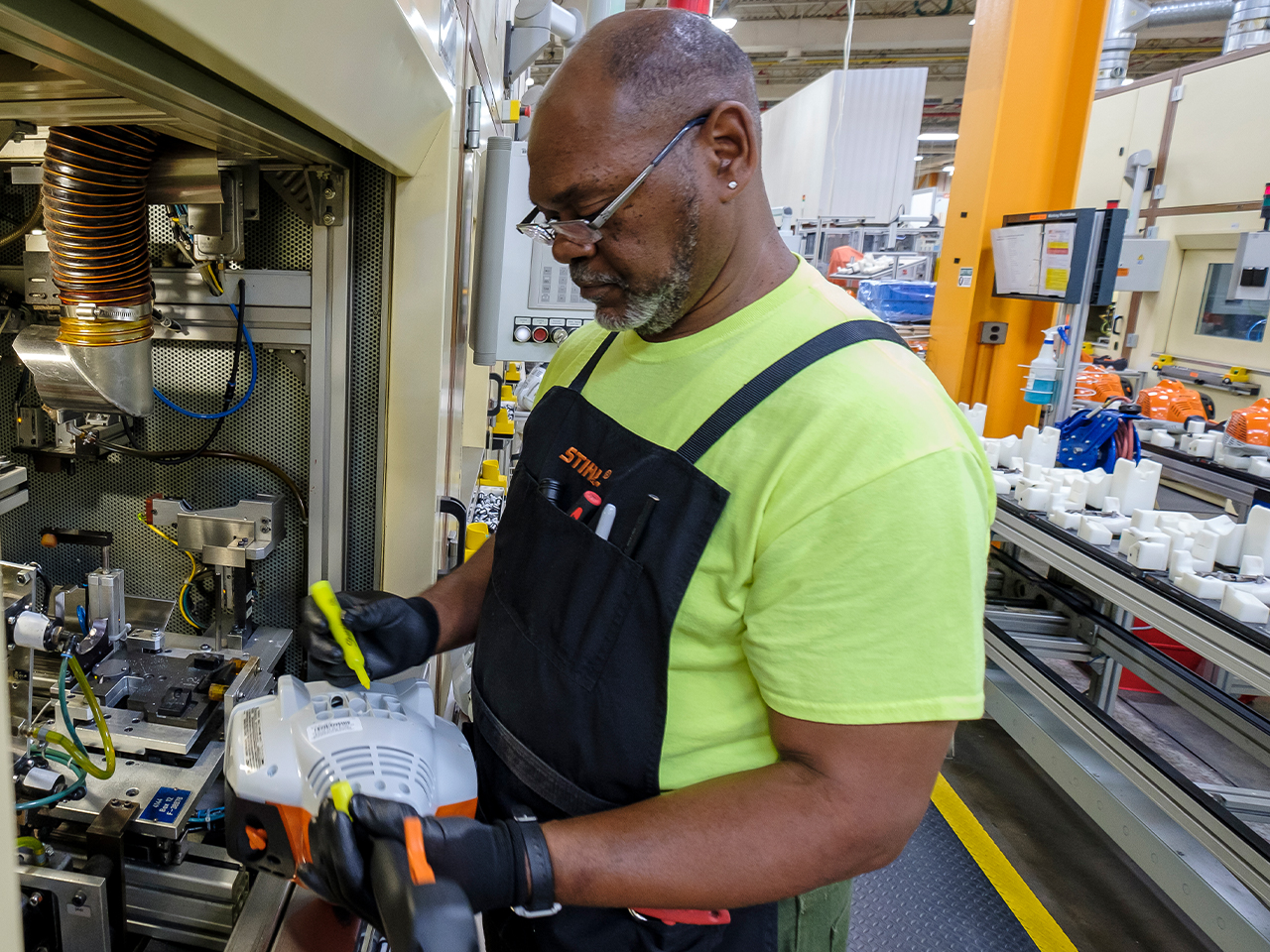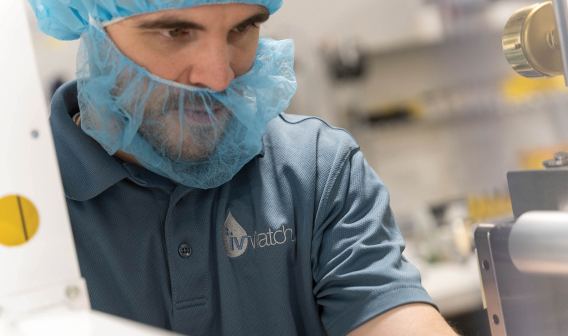Virginia Looks to Workforce Development Leaders on Its Way to the Top
Virginia Talent Accelerator Program Delivers Custom Workforce Solutions to Companies
How does a company find and train the skilled employees that will ultimately determine whether it succeeds or fails? How much does it change location decisions if the company has to create that workforce itself through investments in training — or if it can have a ready workforce delivered by a team of instructional design and facility start-up experts on Day One?
As it turns out, recruitment and training support is vital to winning competitive site location searches. Evidence indicates that state-supported custom workforce training programs are a powerful way to fill skilled job positions, particularly in rural areas. In Georgia, for example, the Quick Start workforce development program has been a key factor in securing major new corporate investment, such as SK Battery America’s $1.7 billion investment in a lithium ion battery plant in rural Commerce.
Workforce development programs can help mitigate a major cost on corporate balance sheets. The 2018 Training Industry Report from Training magazine found that large companies spent an average of $19.7 million on training in 2018, while the smallest companies spent $355,731 on average. The growing labor shortage amplifies the need for a full-service approach to recruiting and training. Manufacturing, for example, is projected to have 2.4 million jobs unfilled over the next 10 years, per research from Deloitte and The Manufacturing Institute. In these industries, companies must create the skilled talent that is critical to stemming these shortages.
Creation of a custom workforce incentive program has been repeatedly identified as one of the top priority initiatives of rural development leaders in Virginia. Now the Commonwealth is acting. VEDP has announced its launch of a new world-class customized workforce training incentive to complement the Virginia Job Investment Program (VJIP) training grant.
Learning From Other States' Efforts
VEDP is launching a custom workforce development program that will accelerate new facility and expansion ramp-ups by shortening the new-hire learning curve. The program will completely customize recruitment and training programs to support companies’ unique processes, equipment, procedures, and culture.
It’s easy to see the appeal to companies considering Virginia for new facilities. The program will be fully customized for each individual company, providing recruitment and customized training down to the position level at no cost to participating companies. The assurance that companies will have access to a quality trained workforce can remove talent acquisition and development from potential concerns about an area.
The success of service-based custom workforce programs in other states provides excellent case studies. Georgia launched Quick Start, the oldest program of its kind in the U.S., in 1967 based on the idea that custom training can help companies more quickly ramp up to production. “Quick Start realized that the most efficient solution to workforce training was also the most cost-effective: provide direct workforce training for new employees in full-time jobs,” notes Jackie Rohosky, deputy commissioner for Georgia Quick Start. To date, Quick Start has provided training for more than 1 million employees across 6,500 projects.
Louisiana launched LED FastStart in 2008 and set out to raise the bar on what a best-in-class workforce program should look like. To date, the program has trained more than 26,000 workers for expanding employers across the state, including rural successes like ConAgra Foods Lamb Weston’s processing facility in tiny Delhi in the state’s northeast corner. LED FastStart has been listed as the gold standard in workforce training by Business Facilities magazine every year since 2010.
Making Strong Investments for Great Returns
Despite these programs’ track records of success, getting one into the top tier of programs is no easy feat. During his 20-plus year career, Jeff Lynn has supported custom workforce development as director of regional project operations for Quick Start, executive director of FastStart, and now as vice chancellor of workforce and economic development efforts for the Alabama Community College System. Lynn has a unique perspective into the challenges facing other states in developing a customized training program.
“Typically, it ties to leadership, innovation, the ability to listen to clients, and over-delivery of sustainable results that impact the companies’ ROI,” Lynn says.
State-driven workforce development training is most effective when it anticipates the needs of those companies seeking support and presents an array of flexible solutions. But it also comes down to understanding the true cost of the investment and budgeting accordingly. As Rohosky points out, these training programs only spend resources when full-time jobs are created, so there is no loss of resources diverted to administering grants, helping the state’s bottom line. “The impact of that job creation can be measured in many various ways, such as tax revenues and the multiplier effect of circulating payroll dollars,” she adds.
Well-considered partnerships can also help a program scale quickly. With funding in place, VEDP is now working closely to develop a training plan with its partner, the Virginia Community College System (VCCS). Over the last two years, VEDP and VCCS leaders have collaborated to create a shared vision for their custom workforce training program.
“This collaboration is such an exciting opportunity for our colleges,” says VCCS Chancellor Glenn DuBois. “Our institutions were created to address Virginia’s unmet needs in higher education and workforce training, and we’re always looking for new ways to fulfill our mission. This program will allow us to be part of important projects right from the beginning and build lasting relationships to ensure businesses get the trained and skilled employees they need to succeed.”
Accelerating Success With Custom Solutions
“Custom workforce recruitment and training incentive programs typically serve as halo-like programs for their states,” VEDP President and CEO Stephen Moret points out. This customized support proves a particular draw in attracting companies to rural areas that have a smaller labor force than bigger metros.
Lynn explains the process like this: “Many companies in rural areas have a limited team, and you must embed you and your team into their unique company situation. Once you understand the needs of the company, you look at all the scenarios that you have to recruit and train people that live in that community.” In rural areas, it becomes more critical to use appropriate marketing techniques for attracting talent that, for example, may have to make a longer commute for employment. “Digital media is critical, but you need to use the right platform to reach your intended audience,” Lynn adds.
The key, however, is to customize the training regardless of location based on unique processes, equipment, shift setup, and other criteria of a company. “Sometimes I would need to bring in an expert on a new process or piece of equipment that that rural company did not have to support the start-up and develop the standard operating procedures, then provide train-the-trainer programs for the team leaders or supervisors,” Lynn shares.
Given historically tight labor markets across the country, companies making strategic location decisions must ask themselves which states and communities can mitigate hiring risk and help them ramp up operations as quickly as possible, whether that's 10, 100, or 1,000 workers.
Offering More Options for Training Support
Virginia has carefully watched the success of training leaders and aims to build upon this foundation. What makes VEDP sure of its success is the fact that the Virginia Talent Accelerator Program is a second option alongside the already successful VJIP. The VJIP grant remains an option for companies that want to execute their own workforce recruitment and training efforts.
In addition, VEDP has tapped Mike Grundmann, a 20-year veteran of Georgia’s top-ranked Quick Start program, as its senior vice president for talent solutions. In Georgia, Grundmann developed more than 100 custom workforce solutions for a range of leading companies.
Grundmann is eager to hit the ground running. “It’s early, but we have started presenting the program to companies who are looking for support in anticipation that some of them will be ready to start hiring around the end of the year or the beginning of 2020,” he says. “We’ll be ready.”
